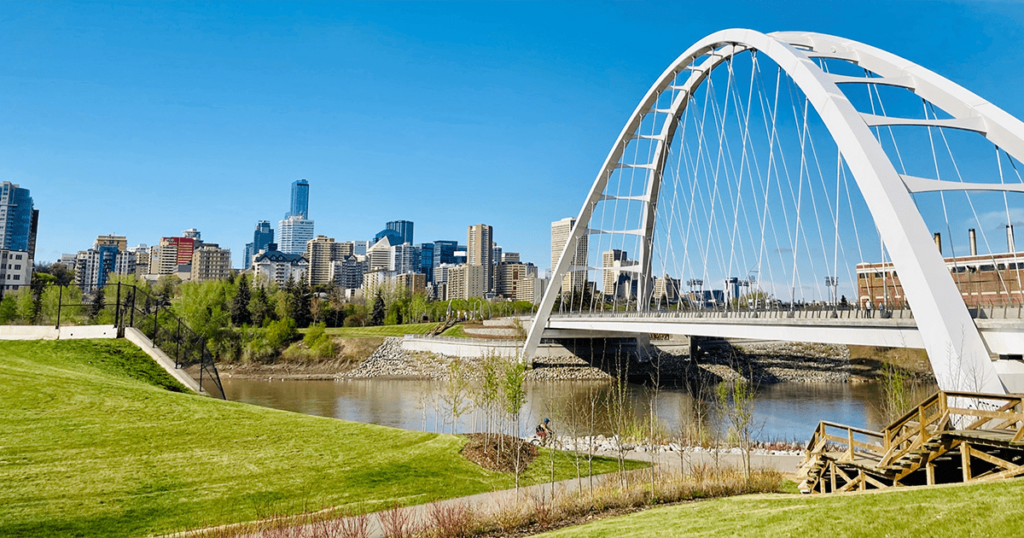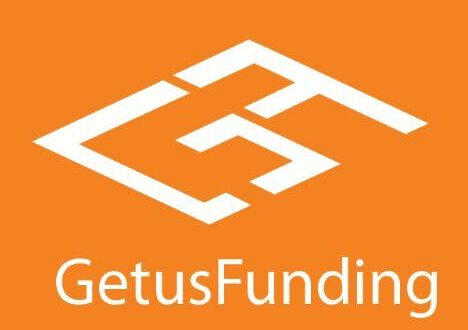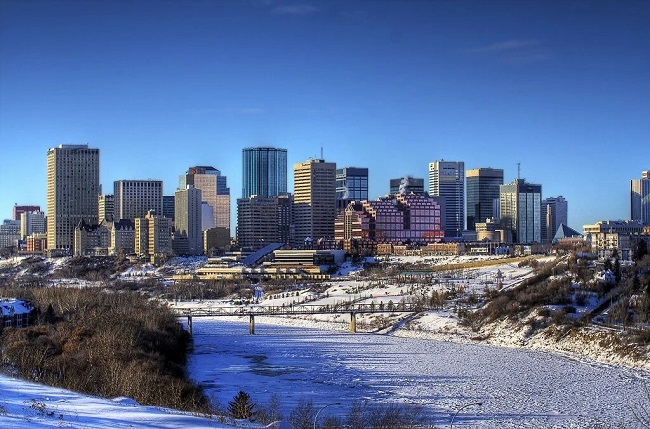Are you considering moving to Edmonton? Congratulations on taking the time to gather essential information before making your decision. Moving to a new city is a significant step, and having the right knowledge can make the transition smoother. In this guide, we’ll provide you with all the key details you need to know about Edmonton, helping you make an informed choice for your next adventure.

Fact File Of Edmonton
- Population in 2016: 932,546
- Average high temperatures in July: 23°C
- Average high temperatures in January: -6°C
- Number of rainy days (0.2mm or more) per year: 77
- Key industries: Public sector, energy, oil, and gas
- Average residential property price (July – September 2017): $390,000
- Time zone: MST (UTC -7 hours)
- Official City of Edmonton website: edmonton.ca
Cost of living in Edmonton
Living in Edmonton, Alberta, comes with several financial perks, making it an attractive destination for many. One notable advantage is the absence of a provincial sales tax in Alberta, which translates to higher disposable income for Edmonton residents compared to their counterparts in other Canadian cities.
Food Costs
Edmonton offers an affordable to moderately priced food scene, particularly when compared to larger Canadian cities. A typical lunch in the central business district can be enjoyed for approximately $15 CAD, while a combo meal at a fast-food restaurant averages around $9 CAD.
Basic grocery staples such as a liter of milk cost approximately $2.20 CAD, a loaf of bread is around $3.20 CAD, and a dozen large eggs are typically priced at $3.50 CAD. If you’re planning a special night out, a three-course meal for two at a mid-range restaurant is estimated to cost around $65 CAD.
Housing Costs
The cost of housing in Edmonton varies depending on your choice of location and the style of accommodation. For instance, a one-bedroom apartment in the city center tends to cost around $1,216 CAD per month, whereas opting for a similar apartment outside the city center would usually be around $998 CAD.
On average, the monthly cost of heating, electricity, and gas for two people residing in an 85m² flat is approximately $255 CAD. For those seeking a two-bedroom rental, prices can range between $800 and $1,500 CAD, with the exact cost influenced by factors like location and the type of property.
Job Market In Edmonton
The job market in Edmonton, Alberta, offers a diverse range of opportunities across various industries. The city’s economy is known for its stability, driven by sectors such as the public sector, energy, and oil and gas. Edmonton’s position as the provincial capital and its status as a major hub for oil and gas activities have contributed to a strong public sector and a growing energy industry.
The public sector, including government and healthcare, plays a significant role in Edmonton’s job market, offering numerous positions in education, healthcare, and administration. The city is home to various educational institutions, such as the University of Alberta, providing employment opportunities in the education sector.
The energy industry, including oil and gas, is a vital component of Edmonton’s economy. The city’s strategic location in the heart of Alberta’s oil and gas sector has led to numerous job openings in fields like engineering, project management, and environmental sciences. Edmonton also houses several energy-related companies, offering opportunities in research, development, and technology.
In recent years, Edmonton has seen growth in technology and innovation, creating employment prospects in the tech sector. Startups, research centers, and technology companies have expanded in the city, providing jobs in fields like software development, data analysis, and artificial intelligence.
Weather In Edmonton
If you’re planning on moving to Edmonton, understanding the weather is essential. Edmonton experiences a diverse climate with distinct seasons. Winters are characterized by cold temperatures, often dropping below freezing, with average highs in January around -6°C. Heavy snowfall and icy conditions are common, so be prepared for snowy winters.
On the other hand, summers are relatively short but can be quite warm. July typically sees average highs of 23°C, making it a pleasant time for outdoor activities. The city receives a fair share of rainfall, with about 77 rainy days (0.2mm or more) per year, so having proper rain gear is advisable.
Edmonton’s variable climate means residents get to enjoy both the beauty of winter and the warmth of summer. Make sure to pack accordingly to be ready for whatever Mother Nature has in store.

Neighborhoods In Edmonton
Ideal Neighborhood for Families
Edmonton’s Terwillegar neighborhood often tops the list as an ideal choice for families. Located in the southwest part of the city, Terwillegar boasts a mix of single-family homes, townhouses, and apartments, providing housing options for various family sizes. Families are drawn to this area due to its family-friendly atmosphere, quality schools, and numerous parks and green spaces. It offers a balanced lifestyle, with shopping centers and recreational facilities. The Terwillegar Community Recreation Center is a hub for family activities and sports. Moreover, it’s known for its excellent access to the Anthony Henday Drive, making commuting a breeze.
Top Neighborhood for Young Professionals
Edmonton’s downtown area and the nearby Oliver neighborhood are the go-to choices for young professionals. These central neighborhoods offer a lively urban environment, abundant job opportunities, and a thriving arts and culture scene. Oliver is known for its numerous high-rise apartment buildings and trendy condos, providing young residents with a modern and convenient lifestyle. You’ll find easy access to some of Edmonton’s best restaurants, bars, and nightlife in this area. The city’s financial district, government buildings, and major corporations are located in the downtown core, making it a prime location for career development.
Most Affordable Neighborhood
If you’re looking for affordability, consider the neighborhood of Beacon Heights in northeast Edmonton. It offers various housing options, including single-family homes and duplexes at budget-friendly prices. Beacon Heights is known for its cost-effective real estate market while maintaining a sense of community and providing essential amenities. This neighborhood is perfect for those who want to own a home without breaking the bank.
Safest Neighborhood in Edmonton
Many prioritize safety when choosing a place to live, and Edmonton’s Brookside neighborhood is often recognized as one of the safest. Located in the southwest part of the city, this area boasts a low crime rate and a close-knit community feel. The neighborhood is characterized by its well-kept homes, green spaces, and a serene environment. Families can enjoy peace of mind in Brookside, knowing their loved ones are in a secure neighborhood.
Neighborhood with the Best Schools
Neighborhoods like Windsor Park and Garneau stand out for families looking to provide their children with the best educational opportunities. These areas are located near the University of Alberta campus and offer access to some of the city’s top-rated schools. Windsor Park, in particular, is known for its proximity to Windsor Park School, renowned for its high academic standards and quality of education. These neighborhoods are also celebrated for their cultural diversity, providing a well-rounded educational experience.
Schools and Education In Edmonton
Primary and Secondary Education
Edmonton offers a robust primary and secondary education system, with numerous public and private schools throughout the city. The Edmonton Public School Board and the Edmonton Catholic School District are the two main public school systems, providing education from kindergarten through grade 12. Edmonton’s public schools are known for their academic excellence, diverse extracurricular activities, and outstanding facilities. Several private schools offer specialized education, including religious-based curriculums, Montessori programs, and more.
Post-Secondary Institutions
Edmonton boasts a variety of post-secondary institutions, making it a hub for higher education in Western Canada. The University of Alberta, located in the city’s heart, is one of the country’s top universities, offering a wide range of undergraduate, graduate, and professional programs. The Northern Alberta Institute of Technology (NAIT) and MacEwan University are prominent institutions that provide practical, career-oriented education. These institutions contribute to Edmonton’s reputation as a center for research and innovation.
Specialized Programs
Edmonton is known for its specialized programs and centers of excellence. For example, the Centre for Arts and Communications at MacEwan University is a hub for students pursuing creative and artistic disciplines. NAIT’s technical programs are renowned for preparing students for careers in areas like engineering, health care, and information technology. The University of Alberta is also celebrated for its strong research programs across various fields.
Adult and Lifelong Learning
For adults seeking lifelong learning opportunities, Edmonton has a variety of resources. The city’s public library system is a valuable educational asset, offering access to books, digital resources, and community programs. Many community centers and organizations also offer courses and workshops for adult learners looking to develop new skills or explore personal interests.
Healthcare in Edmonton
Public Healthcare
Public healthcare in Edmonton is primarily provided through the Alberta Health Services (AHS), a government agency responsible for delivering healthcare services across the province. AHS manages a network of hospitals, clinics, and healthcare facilities throughout the Edmonton area. Residents can access a wide range of medical services, from primary care and emergency services to specialized treatments.
Hospitals and Medical Centers
Edmonton is home to several major hospitals and medical centers. The University of Alberta Hospital, the Royal Alexandra Hospital, and the Stollery Children’s Hospital are some of the city’s leading healthcare institutions. These hospitals offer a full spectrum of medical services, including emergency care, surgeries, cancer treatment, and more. Many of them are affiliated with the University of Alberta, which enhances the quality of care and fosters medical research and education.
Specialized Care and Research
Edmonton is renowned for its specialized healthcare services and medical research programs. The Cross Cancer Institute is a leader in cancer treatment and research, while the Glenrose Rehabilitation Hospital is dedicated to providing rehabilitation services. The Mazankowski Alberta Heart Institute specializes in cardiovascular care and research. These institutions attract patients from across Alberta and beyond for their specialized expertise.
Primary Care and Family Medicine
Residents of Edmonton can access primary care through family physicians, walk-in clinics, and primary care networks. These networks promote holistic healthcare services and provide patients with access to a range of healthcare professionals. The city’s healthcare infrastructure prioritizes preventive care and early intervention, making primary care accessible to residents.
Mental Health and Wellness Services
Edmonton offers a wide range of mental health services and resources. The Alberta Health Services Mental Health Clinic provides support for individuals facing mental health challenges. Additionally, numerous community organizations offer mental health and wellness programs, and the University of Alberta’s Hospital and Clinics offer specialized psychiatric care.
Transportation in Edmonton
Driving
Edmonton is a city where owning a car is a common and practical choice. The road infrastructure is well-developed, and driving is a convenient way to get around. The city experiences all four seasons, including harsh winters, so it’s essential to have suitable winter tires and be prepared for snowy conditions. Fortunately, road maintenance and snow removal are efficient in Edmonton, ensuring safe travel throughout the year.
Parking is generally accessible in the city, with numerous parking lots, parkades, and street parking options. Some areas may require payment for parking, particularly in the downtown core. Being aware of parking regulations and fees is crucial to avoid fines.
Public Transit
Edmonton’s public transit system, Edmonton Transit Service (ETS), is a reliable and cost-effective option for moving around the city. ETS comprises an extensive network of bus routes and a light rail transit (LRT) system known as the Edmonton LRT.
Buses serve all city areas, making them an excellent choice for daily commuting and getting to various destinations. The LRT system offers rapid transportation between key locations, including downtown, the University of Alberta, and other major centers. ETS schedules are well-planned and punctual, making it convenient for those who rely on public transportation.
Cycling
Edmonton is known for its commitment to creating a bike-friendly environment. The city boasts an extensive network of bike lanes, paths, and trails, making it an excellent option for cyclists. Whether commuting, enjoying a leisurely ride, or seeking an active lifestyle, cycling is a practical and eco-friendly choice.
During the warmer months, many residents take advantage of the cycling infrastructure. The River Valley, in particular, offers beautiful scenic routes for cyclists to explore. Edmonton also has bike-sharing programs and dedicated cycling events, further promoting this mode of transportation.
Walking
Many areas of Edmonton are pedestrian-friendly, featuring well-maintained sidewalks and pathways. Walking is an excellent way to explore neighborhoods, discover local shops, and enjoy green spaces. Some neighborhoods have concentrated commercial districts, making them ideal for walking and exploring. In the downtown core, you’ll find a concentration of amenities, restaurants, shops, and cultural attractions, all within walking distance. It’s an excellent way to experience the heart of the city.
Ridesharing and Taxis
Ridesharing services like Uber and Lyft have become popular in Edmonton, providing residents and visitors convenient on-demand transportation. These services offer a hassle-free way to get around the city, especially if you prefer to avoid driving or using public transit. Also, traditional taxis are readily available and can be hailed on the street or booked in advance. Taxis are a reliable mode of transportation and are regulated to ensure passenger safety.
Restaurant And Dining Life
The city’s dining options range from fine dining establishments and cozy bistros to food trucks and local eateries. If you’re looking for a special night out, you can choose from upscale restaurants known for their exquisite menus and impeccable service. Edmonton’s culinary culture includes farm-to-table and locally sourced ingredients, making for some truly memorable dining experiences.
For those who appreciate international flavors, the city’s diverse population ensures a vast selection of cuisines from around the world. You can savor dishes from various regions, such as Italian, Chinese, Indian, Mexican, and Thai, among others. Edmonton’s cultural diversity is reflected in its restaurant offerings, making it a melting pot of culinary experiences.
Edmonton’s food scene doesn’t stop at traditional restaurants. The city’s food truck culture has been thriving in recent years, offering an array of delectable street food options. It’s an ideal way to taste unique dishes while enjoying Edmonton’s outdoor atmosphere.
Furthermore, the city’s coffee culture is vibrant, with numerous cafes and coffee shops serving up artisanal brews. These establishments often double as cozy places to unwind, study, or catch up with friends. Whether you prefer specialty coffee or a classic brew, Edmonton’s cafe scene has something for you.
Planning on moving to Winnipeg then read this article.

